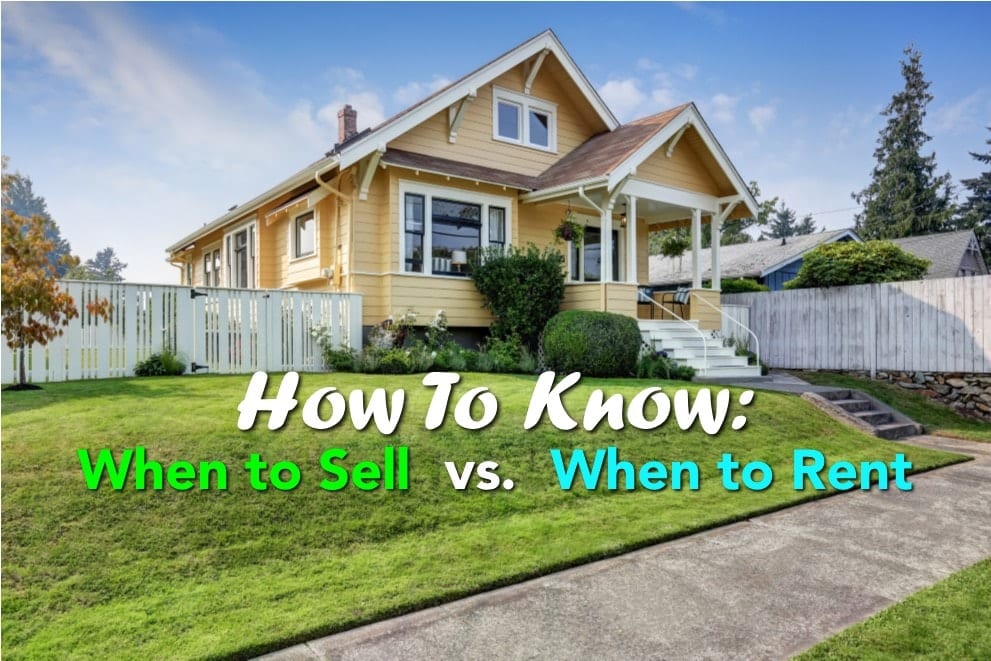If you’re investing in real estate using the fix and flip method, there’s a question that’s crucial for getting the highest return possible:
Do you sell the property for quick cash or rent it out for passive income?
This can be a tough one to answer because there are so many factors in play. Fortunately, we have some simple guidelines to help you analyze your potential properties and maximize the return on your investments.
Location, Location, Location
In the world of real estate investing, you’ll hear over and over how location is one of the most vital factors for success.
The same can be said when considering the sell vs. rent your flip situation.
To simplify, here are the crucial questions to answer:
- Forget about national trends for a second and take a closer look at your local market. Are the houses that match your potential investment property for sale or for rent?
- What drives demand for each in your area? New job opportunities? New schools?
- What are the sales/rental prices?
- Some markets are volatile, and some are insulated – could yours change dramatically between when you purchase the property and when construction is complete? Rentals are safe to ride out the local market fluctuations, but for-sale properties can win big if the timing is right.
- Renting may also be a viable option for a short period of time as property values in the are rise. If they see a significant jump after a few years, investors can simply update/upgrade the property to reflect the resale market and list their home for a large profit.
Rehab Budget
If you are working with a limited budget to fix the property, it may be more ideal to rent rather than flip.
The two main reasons why are:
- Rental-grade materials are almost always cheaper than higher-end components that are used to fetch a higher sales price.
- Rental rehabs are usually less extensive, with less money needing to be spent on demolishing walls, resurfacing “popcorn” ceilings, etc.
Tax Talk – Understand Capital Gains Tax
After the rehab budget, the next thing to consider is capital gains tax. The principle is simple – when you flip a home for a profit, you realize a capital gain.
How much you actually pay on those gains depends on various factors, including the ever-changing tax brackets and if you’re selling in less or more than a year.
Here’s a quick overview of the short versus long-term capital gains rule:
- Purchase to resale period is less than one year, the short-term capital gains tax is hefty.
- Purchase to resale period is over one year, the long-term capital gains tax will be about half the price of short term.
With little research you can find your exact number; we recommend the Tax Foundation.
Of course, long-term investments are recommended for avoiding high capital gains taxes, but many still choose our Fix and Flip Loans to see quicker gains, which is why many hard money loans are short-term (12 months or less).
Again – everything will be based on your personal situation. Always do your research to understand the financial costs and benefits when first deciding between selling and renting.
Seasonality Can Make All the Difference
Contingent on your market, if your rehab is not complete in time to hit the market during the warmer and more lucrative months for selling, you may consider holding onto it through winter.
This equates to either a few or many more months of taxes, utilities, and upkeep. The decision will weigh into the tax implications also, but this is a wise time to reconsider your options.
If seasonality will affect your uncompleted rehab flip, consider the following:
- Partial Rehab: Are you in a position to take on the front-end of a full rehab, selling the project when it is closer to completion and allows the buyer to make some final design decisions based on their own preferences?
- Refinance: Is it possible to refinance from a fix-and-flip loan to a longer-term rental loan?
- Rent: Would it make more sense to rent out the property until local market conditions are favorable?
- Go Higher-End: Can you make resale-level upgrades to your property and rent it out at a higher amount, and not have to worry about a significant rehab when you are ready to sell?
- Sell: Would you make any gains and have fewer headaches if you just sold? Again, don’t forget about the tax implications above.
Consider each of these questions before making any decisions about unseasonable situations – get the most ROI as possible.
Don’t Forget Overall Market Trends
It’d be impossible to wrap up this article without mentioning overall market trends and how they can drastically influence your decision.
Many financial experts are predicting a market correction in the next few years, meaning at some point home prices will decrease to “correct” currently inflated sales prices of homes.
When many investors hear the word “correction” they immediately go into full-on rental mode to ride out any instability or dropping values ahead. If the economic signs truly point toward a correction in the imminent future, focusing on rentals is a solid option.
The good news? Lenders and housing developers have learned from the late 2000’s recession that overextension and greedy practices will cause a market collapse that causes their own businesses to suffer.
So, while other investors are sticking their heads in the sand early, a smaller pool of rehabbers are continuing to take advantage of high sales prices while keeping a close eye on economic indicators of corrections.

